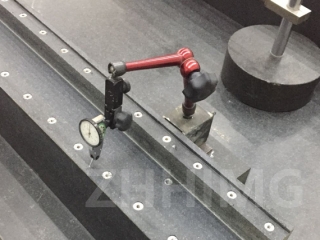Precision Ceramics and Granite: Advantages and Applications
In the realm of advanced materials, precision ceramics and granite stand out for their unique properties and diverse applications. Both materials offer distinct advantages that make them suitable for various industries, from aerospace to electronics.
Advantages of Precision Ceramics
Precision ceramics are known for their exceptional hardness, thermal stability, and resistance to wear and corrosion. These properties make them ideal for high-performance applications. For instance, in the aerospace industry, precision ceramics are used in turbine engines and thermal barrier coatings, where they can withstand extreme temperatures and harsh environments. Additionally, their electrical insulating properties make them valuable in the electronics sector, where they are used in capacitors, insulators, and substrates for circuit boards.
Another significant advantage of precision ceramics is their ability to be manufactured with high dimensional accuracy. This precision allows for the creation of complex shapes and designs that are essential in modern engineering applications. Furthermore, ceramics can be tailored to meet specific requirements, such as varying levels of porosity or specific thermal conductivities, enhancing their versatility.
Advantages of Granite
Granite, a natural stone, is renowned for its durability and aesthetic appeal. Its high compressive strength and resistance to scratching make it a popular choice for countertops, flooring, and architectural applications. In construction, granite is often used for facades and monuments due to its ability to withstand weathering and its timeless beauty.
Moreover, granite's thermal properties make it suitable for applications in the kitchen, where it can handle high temperatures without damage. Its natural variations in color and pattern also provide a unique aesthetic that is highly sought after in interior design.
Applications
The applications of precision ceramics and granite are vast and varied. Precision ceramics find their place in cutting tools, biomedical implants, and even in the automotive industry for components that require high wear resistance. On the other hand, granite is widely used in residential and commercial spaces, as well as in monuments and sculptures.
In conclusion, both precision ceramics and granite offer significant advantages that cater to a wide range of applications. Their unique properties not only enhance performance but also contribute to the aesthetic and functional aspects of various products and structures.
Post time: Oct-30-2024

